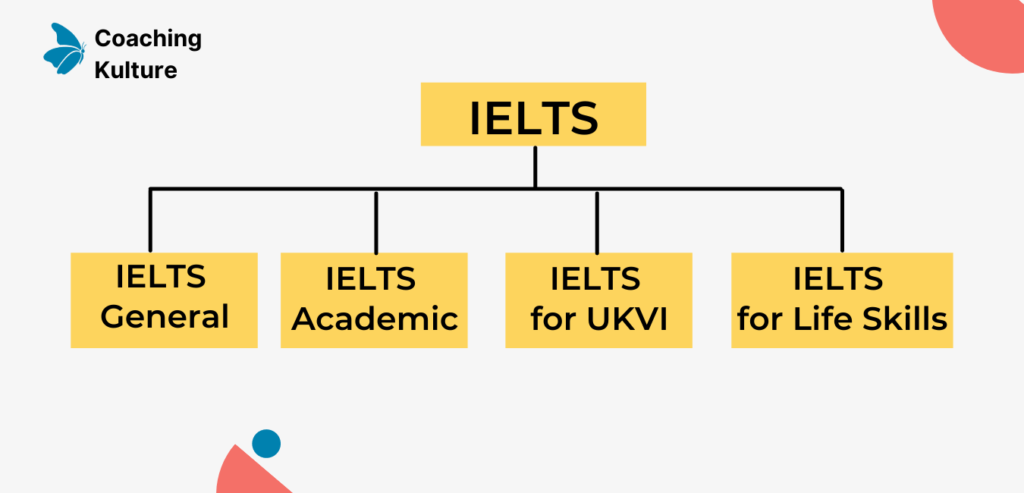The Ultimate Guide on what is IELTS exam?
We all live in a society where people with good Communication Skills are always valued and dignified. However, have you ever wondered despite the professional skillset and achieving a good degree many of us still struggle to communicate in English, and majorly we Indians tend to use British or American accents to impress people isn’t it?
The fact that Indians have been the youngest population, 90% of them wish to study or work abroad, but only 10% of Indians could communicate in Global English as per the statistics.
If you wish to study or work abroad you need to portray your Communication skills through an English Proficiency test. The motive of such an exam is to test if the person can read and communicate the language of the particular country to which you are applying. IELTS Exam is one such exam that will certify that you are a GLOBAL English Communicator.
If you are wondering what is IELTS exam, then this blog post is for you.
Set back to read through the article which will provide you with valuable IELTS information and its benefits.
What is IELTS exam?
IELTS (International English language Testing System) is a renowned English Test taken for people willing to work and study abroad and for immigration needs. However, there are majorly two different tests namely Academic and General Training IELTS. Duration for both the tests is 2 hours 45 minutes and scaled from 0 (Lowest) to 9 (Highest) bands.
The exam is split into four different sessions of Listening, Reading, Writing, and Speaking. The Speaking and Listening Sessions are pretty much similar in both Academic and General Training IELTS while Reading and Writing patterns vary.
Difference between Academic and General IELTS

IELTS General Training
If you are a working professional and want to migrate to other countries for work or immigration then IELTS General is the exam you should take to prove your English Communication Skills.
It is easier and mainly tests your practical and daily English Communications content.
IELTS Academic Training
If you are a student willing to take admission to a university abroad then IELTS for Academic purposes or IELTS academic is the accepted test amongst various universities.
More in-depth and includes more analytical content which includes diagrams and bar charts etc.
What is the structure of the IELTS exam?
1.Listening Module
You need to listen to four audio recordings and answer the questions. The total duration allotted is 30 minutes
2.Reading Module
Reading Module for General Training
You will have 4 short passages which would be mostly generic and related to social issues.
Reading Module for Academic Training
You need to answer from 3 long passages which include analytical topics from magazines and Journals etc.
The duration for both sessions would be 60 minutes.
3.Writing Module
The writing session consists of two different tasks and task 1 for both the General and academic training differs.
Writing Module for General Training
Task 1 includes letter writing on a particular topic with a minimum of 150 words and the duration is 20 minutes.
Task 2 is mainly based on your opinions and views on a simple topic to be written with a minimum of 250 words and the duration is 40 minutes.
Writing Module for Academic Training
Task 1 includes Bar graphs or pie charts and based on the tabular content you need to answer the questions in 150 words and the duration is 20 minutes.
Task 2 is similar to general training where you need to express your opinions and views on a generic topic to be written with a minimum of 250 words and the duration is 40 minutes.
4.Speaking Module
This session judges your communication skills.
The speaking session is recorded and the duration is around 11 to 14 minutes.
A quick tip here that can help you- Just focus on your vocabulary rather than your accent and be clear and take time and speak slowly rather than stumbling with the words.
There are even other IELTS tests such as IELTS for UKVI and IELTS for Life Skills.
IELTS for UKVI
This exam is mainly used by students or professionals wanting to immigrate to the UK. As the test patterns remain the same but are only accepted by UKVI (UK Visa and Immigration).
IELTS for Life Skills
This exam is a new version of IELTS approved by the UK Government for people wanting to improve their English Speaking and Listening Skills to migrate to the UK.
The two levels of IELTS Life Skills are
IELTS Life Skills A1– If you are applying for a visit visa to the UK.
IELTS Life Skills B1– If you are applying for an indefinite Leave or citizenship in the UK.
Let's check out some most common FAQ’s
1.How long are IELTS Results valid?
2 years is the validity for your IELTS Results.
2.How are the exams conducted?
You can take the IELTS Exam either through Computer Based or Pen and Paper Based.
IELTS Computer-based test would be available 3 times a day and 7 days a week
The results would be out in 3-5 days.
IELTS Pen and the paper-based test is available for 4 fixed days in a month
The results take around 13 days.
3.What are the fees for the test?
IELTS Computer and Pen and Paper Based – INR 14700
IELTS Life Skills- INR 13940
IELTS UKVI- INR 15100
4.How much do I need to score?
If you are a student applying for UG most of the universities’ minimum requirement is 6 bands with no band less than 5.5 in each.
If you are applying for PG then the ideal requirement is 6.5 band with no band less than 6 in each.
For working professionals ideally, 8+ band overall in General Training is considered to be a good score but can vary as per the immigration rules and requirements as per particular country.
5.Why should I opt for IELTS rather than another English proficiency test?
Accepted globally by all the Universities.
Less time duration for the test as compared to other exams.
User friendly.
Here's the big question - How will IELTS help me?
IELTS plays a predominant role in your study or work abroad opportunities. The exam is an authentication of being a Global English Communicator.
For working professionals applying for varying job or immigration purposes, the data reveals 90% of Skilled Professionals lack Communication Skills over professional skills. A higher IELTS band can help you get a better pay package and also can increase the chances of recruiters approaching you over others who do not attempt an IELTS for work permits.
While it comes to students applying for Universities abroad IELTS could be a decision-maker in getting admitted into top-ranked universities.
Let’s check out added points on IELTS benefits for International students
India is a Non-English Speaking Country, hence Indian students need to prove their Communications skills over native English Speakers, and IELTS Score is proof that you are a global English Communicator.
Achieving a scholarship from a top-notch university is always a prestige towards your application and guess what, achieving an IELTS score of 8 bands and above could help you avail good amount of scholarships in many of the universities. There are even government-funded scholarships that almost cover your living cost and are highly competitive. IELTS score with the highest band will keep you ahead of the competition and you can be one step ahead in the race.
All countries allow International students to work part-time and provide internships opportunities, with a better IELTS Score you can even be paid more than your other peers and would give you an edge over others.
In a nutshell, achieving the highest band in IELTS is not impossible but it is not a cakewalk either. You need to follow the right strategy, the tips and tricks of approaching a particular question, and time management techniques through regular practice and the right guidance to achieve the highest band in one go. This information is just a drop in the vast ocean of IELTS as a subject. Going forward stay tuned for more insights on the intricate details of the topics.

